dy/dx=(2x)/(3y^21) y^3y=x^2 By differentiating wrt x, Rightarrow 3y^2 dy/dx dy/dx=2x By factoring out dy/dx, Rightarrow (3y^21) dy/dx=2x By dividing both sides by (3y^21), Rightarrow dy/dx=(2x)/(3y^21) I hope that this was clear2 ( y 2 − x y) d x x 2 d y = 0 Need step by step answer Thank you in advance for your help ordinarydifferentialequations derivatives Share edited Mar 8 '14 at 2230 doraemonpaul 151k 3Solution for Solve dy/dx=2xy/(x^2y^2) Q A group of 150 tourists planned to visit East AfricaAmong them, 3 fall ill and did not come, of th A Consider the provided question, First draw the Venn diagram according to the given question, Let K r

If Y X X 1 X 2 Then Dy Dx Is Brainly In
Y=2x^2+3x+2 then dy/dx
Y=2x^2+3x+2 then dy/dx- Question If 3x^22xyy^2=2 then the value of dy/dx at x=1 is Jorgen made deposits of $250 at the end of each year for 12 years The rate received was 6% annually If 2x2 – 3xy y2 x 2y – 8 = 0, then find dy/dx Welcome to Sarthaks eConnect A unique platform where students can interact with teachers/experts/students to get



1
Solution of the differential equation (dy/dx)(3x2y5/2x3y5)=0 is (A) 3x2 4xy 3y2 10x 10y = k (B) x2 4xy y2 4x 6y = k (xSPECIAL CASE #2 A firstorder differential equation of the form y'=f (axbyc) where b0, can always be reduced to a separable firstorder equation by means of the substitution v=axbyc Example y'=1/ (xy1) Solution If we let v=xy1, then dv/dx=1dy/dx, so the differential equation is transformed into (dv/dx)1=1/v or dv/dx= (1v)/v, soQuestion From – Cengage BM Sharma MECHANICS 1 BASIC MATHEMATICS JEE Main, JEE Advanced, NEET, KVPY, AIIMS, CBSE, RBSE, UP, MP, BIHAR BOARDQUESTION TEXTIf `
Start your free trial In partnership with You are being redirected to Course Hero I want to submit the same problem to Course Hero CancelI've gotten to the point where i have (5((3x^2) 5)^4)(4(x2)^3)(6x), what do i do next?We have D (xy^2) = 2x Integrate each side with respect to x to get xy^2 = x^2 C (constant of integration) We will assume we are on the interval (0, infinity) here, so x > 0 Divide by x to get y^2 =x C/x, which gives an implicit form of the general solution on (0, infinity) This is
Simple and best practice solution for (3x^2y^2)dx(2xy)dy=0 equation Check how easy it is, and learn it for the future Our solution is simple, and easy to understand, so don`t hesitate to use it as a solution of your homeworkClick here👆to get an answer to your question ️ If 2^x 2^y = 2^x y , then dydx is equal to Join / Login > 12th > Maths > Continuity and Differentiability > Derivatives of Implicit FunctionsIf y = tan^1 4x/(15x^2) tan^1 (2 3x)/(32x), then dy/dx =
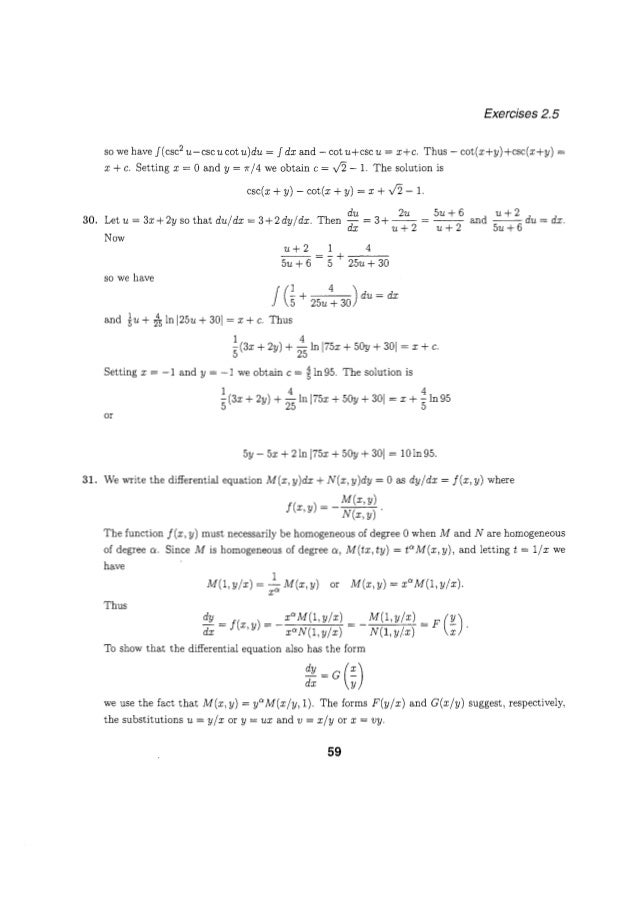



Solucionarioecuacionesdiferencialesdenniszill7aedicion P
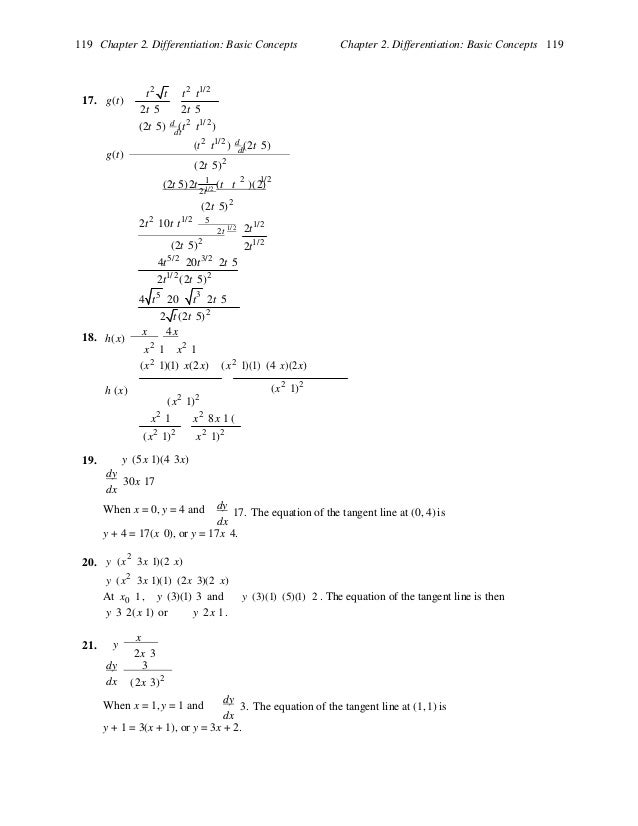



Solutions Manual For Calculus For Business Economics And The Social A
Given y = 2x^2 3x 2 find dy/dx To get dy/dx from a formula y in terms of x we must differentiate y with respect to x Generic formula for term differentiation d/dx (ax^b) = bax^b1 = times the coefficient by the power and minus the power by one Applying to each term in the formula gives us dy/dx = 4x 3 Answered by Alex O • Maths tutor 5137 ViewsThe derivative of y with respect to t of `y=2x^25x` at x=3 with `(dx)/(dt)=2` is 14 This result can be interpreted as follows let p be a point on the parabola given by `y=2x^25x`Find dz/dx, dz/dy where x^3 y^3 z^2 3xy^2 z = 3 Answer dz/dx = 3 (y^2 z x^2)/y^2 (2yz 3x), dz/dy = 3z (yz 2x)/y (2yz 3x) Get more help from Chegg
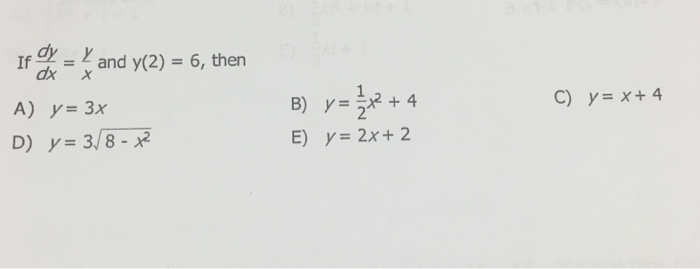



If Dy Dx Y X And Y 2 6 Then Y 3x Y Chegg Com




How To Do Implicit Differentiation 7 Steps With Pictures
Ydy F x 1 dx 1 F x 2 dx 2 =0 then set all the differentials except the ones in question equal to zero (ie set dx 2 =0)which leaves F ydy F x1 dx 1 =0 or F ydy = −F x 1 dx 1 dividing both sides by F y and dx =3x2 2xy 4y3 Answer dy dx = − We have dy dx 3x2y = 6x2 We have d y d x 3 x 2 y = 6 x 2 Then I = e∫ 3x2dx = ex3 Then I = e ∫ 3 x 2 d x = e x 3 Multiply through by I ex3 dy dx 3x2ex3 y derivative of ex3 y = 6x2ex3 Multiply through by I e x 3 d y d x 3 x 2 e x 3 y ⏟ derivative of e x 3 y = 6 x 2 e x 3Our online expert tutors can answer this problem Get stepbystep solutions from expert tutors as fast as 1530 minutes Your first 5 questions are on us!




If Y X 2 2x 3x 4 Then Find Dy Dx



What Is The General Solution To The Differential Equation Math 3x 2 2xy 3y 2 Mathrm D X 4xy Mathrm D Y Math Quora
The nice thing about this differential equation is that the dy dx is already isolated, therefore the answer can be obtained by simply integrating both sides ∫dy = ∫3x 2 x2 dx y = 3 2x2 −2x−1 C y = 3 2x2 − 2 x C 2 = 3 2 (1)2 − 2 1 C 4 − 3 2 = C 5 2 = CCalculus Find dy/dx y=3x^2 y = 3x2 y = 3 x 2 Differentiate both sides of the equation d dx (y) = d dx (3x2) d d x ( y) = d d x ( 3 x 2) The derivative of y y with respect to x x is y' y ′ y' y ′ Differentiate the right side of the equation Tap for more stepsMove all terms containing d to the left, all other terms to the right Factor out the Greatest Common Factor (GCF), 'dy' dy(3x 2 3y 2) = 0 Subproblem 1 Set the factor 'dy' equal to zero and attempt to solve Simplifying dy = 0 Solving dy = 0 Move all terms containing d to the left, all other terms to the right




If Y Xcot X 2x2 3 X2 X 2 Find Dy Dx Mention Each And Every Step Mathematics Topperlearning Com Palrsebb



If Y 1 4 U 4 U 2 3 X 3 5 Then Dy Dx Is A 1 27 X 2 2x 3 15 3 B 2 27 X 2x 3 5 3 C 2 27 X 2 2x 3 15 3 Sarthaks Econnect Largest Online Education Community
Separabledifferentialequationcalculator x\frac{dy}{dx}=y^{2} en Related Symbolab blog posts Advanced Math Solutions – Ordinary Differential Equations Calculator, Linear ODE Ordinary differential equations can be a little tricky In a previous post, we talked about a brief overview of How do you find the coordinates of the stationary points to this implicit differentiation equation? Question From – Cengage BM Sharma MECHANICS 1 BASIC MATHEMATICS JEE Main, JEE Advanced, NEET, KVPY, AIIMS, CBSE, RBSE, UP,
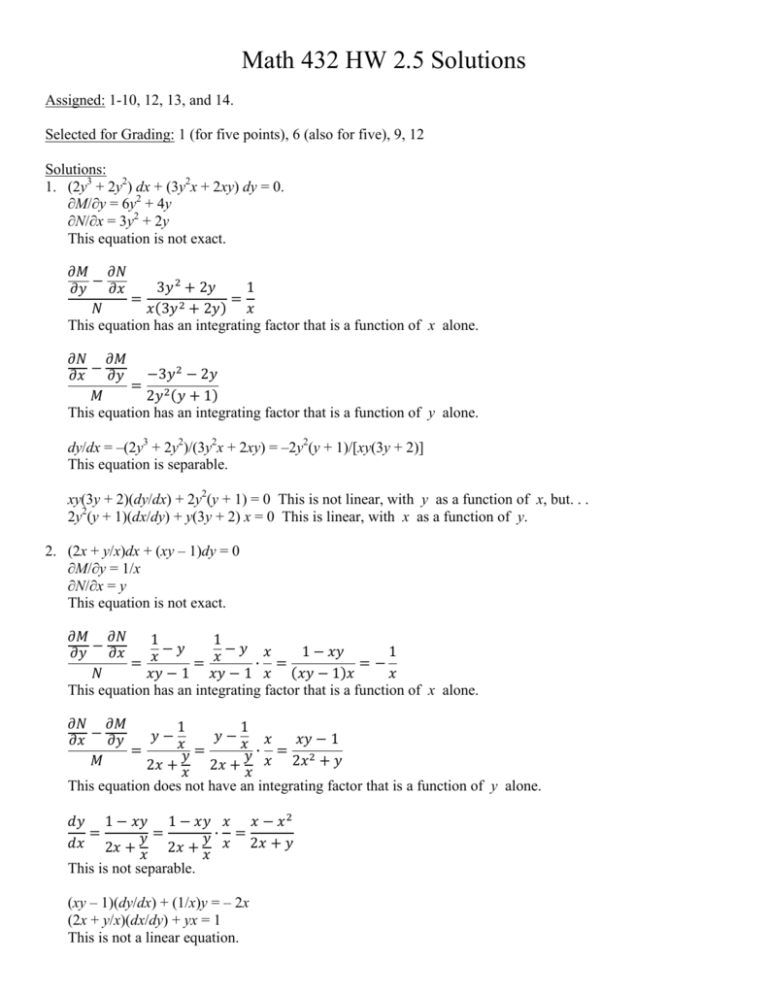



Math 432 Hw 2 5 Solutions




If Y Tan 1 X 2 3x Then Dy Dx 1 1 X 2 Chegg Com
If y = (((3x^2) 5)^5)((x2)^4), then dy/dx = ? Transcript Ex 96, 2 For each of the differential equation , find the general solution 𝑑𝑦𝑑𝑥3𝑦= 𝑒−2𝑥 𝑑𝑦𝑑𝑥3𝑦= 𝑒−2𝑥 Step 1 Put in form 𝑑𝑦𝑑𝑥 Py = Q 𝑑𝑦𝑑𝑥 3y = 𝑒−2𝑥 Step 2 Find P and Q by comparing, we get 𝑃=3 and QGiven differential equation is y"=1 (y')^2,where y'=dy/dx and y"=d^2y/dx^2 Put y'=p so that p'=1p^2 =>dp/ (1p^2)=dx Variables are separableIntegrating both the sides we get tan^1 (p)=xA Given differential equation is y"=1 (y')^2,where y'=dy/dx and y"=d^2y/dx^2



Www Amherst Edu Media View Original Ma11spring11finalanswers Pdf



Secure Media Collegeboard Org Digitalservices Pdf Ap Ap16 Calculus Ab Q4 Pdf
X^2y = y^2 2x 2xy x^2yy' = 2yy' 2 y'(x^2y2y) = 22xy y' = 2(1xy) y(x^22) math 3x^22xyy^2=2 then the value of dy/dx at x=1 is?Answer to 1 If 3x^22xyy^2=2 then the value of \frac{dy}{dx} x = 1 is \\ A 2 \\ B 0 \\ C 2 \\ D 4 \\ E not defined By signing up, you'llSolve () 2 (6x y )dx y 2x 3y dy 0 − = A 3x 22xyy 2 =C C 3x 22x 2 yy 2 =C B x 23xy2y 2 =C D 3x 2y 3 xy 2 =C * Solve () 2 2 (2xy 3x )dx x y dy 0 − = A 3x 22y 3y 2 =C C 3x 22x 2y 3 =C B 2x 2 y2x 3 y 2 =C * D x 2y 2 3xy 2 =C 21 Find the particular solution of xyy'=1y 2, when x=2 and y=3 A 2y 2




Ex 5 3 5 Find Dy Dx In X2 Xy Y2 100 Class 12
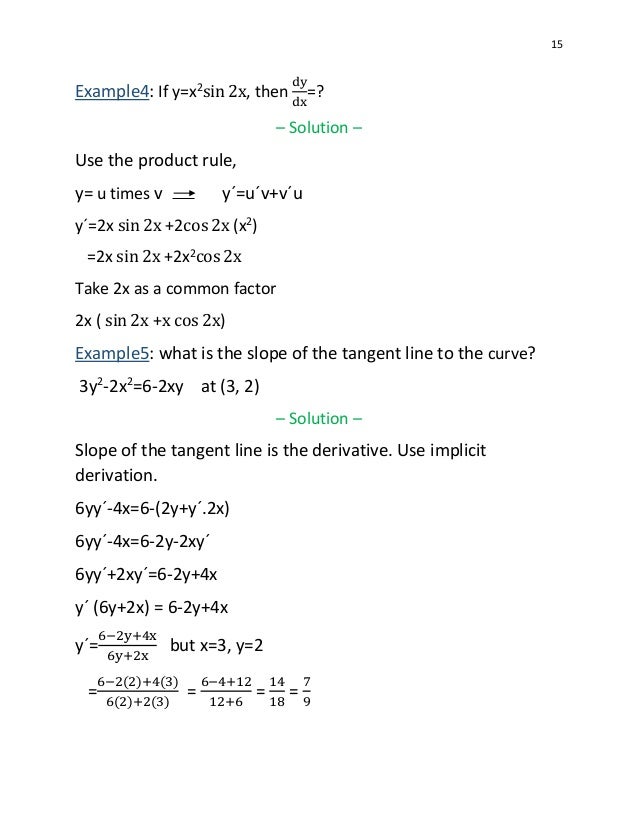



Calculusstudyguide
View this answer Given 2xy dx(x2−1) dy = 0 2 x y d x ( x 2 − 1) d y = 0 Rewrite 2xy dxx2 dy−1 dy = 0 2 x y d x x 2 d y − 1 d y = 0 Change the sides $$2 xy \ dx x^2 \ dy = 1A 10/3 B 0 C 2 D 10/3 E UndefinedClick here👆to get an answer to your question ️ Solve (x^3 3xy^2) dx (y^3 3x^2y)dy = 0



Http Www2 Southeastern Edu Academics Faculty Ereyes 0ch2 Pdf




If 2x 2 3xy Y 2 X 2y 8 0 Then Dy Dx Youtube
VITEEE 19 If y=tan1 (4x/15x2)tan1 (23x/32x), then (dy/dx)= (A) (1/125x2)(2/1x2) (B) (2/125x2)(2/1x2) (5/125x2) (D) (1/125x2) Che Find dy/dx (x) 1/2 (y) 1/2 = (a) 1/2 Mention each and every step If y = tan 1 a/x log (xa/xa) 1/2 , prove that dy/dx = 2a 3 /(x 4 – a 4 ) Mention each and every step Queries asked on Sunday & after 7pm from Monday to Saturday will be answered after 12pm the next working day(quiz problem, (Sec 26 Problem 3)) Determine if the following equation is exact Find the solution if it is exact (3x2 −2xy 2)dx(6y2 −x2 3)dy = 0 Solution Let M(x,y) = 3x2 − 2xy 2 and N(x,y) = 6y2 − x2 3 We have M y = −2x and N x = −2x So M y = N x and the given equation is exact Thus there is a function φ(x,y) such




Ex 5 7 1 Find Second Order Derivatives Of X2 3x 2



What Is The Solution For Dy Dx Y 2x X Y 3 Quora
5 Let f and g be differentiable functions satisfying g 1(a) =2,g(a) =b and f og = i (identity function)then f 1(b) is equal to 1 ½ 2 2 3 2/3 4 ½ calculus If 3x^22xyy2=2 then the value of dy/dx x = 1 is A 2 B 0 C 2 D 4 E not defined 0 0 1,104 asked by Taeyeon 3x^22xyy2=2 6x 2y 2xy' 2yy' = 0 x=1 ==> y=1Solve ( dy(x))/( dx) (3 x^3 4 x y(x)) 2 y(x)^2 4 x^2 y(x) = 0 Let y(x) = 1/4 (3 x^2 v(x)), which gives ( dy(x))/( dx) = 1/4 (6 x ( dv(x))/( dx)) x^2 (3 x^2 v(x)) 1/4 (6 x ( dv(x))/( dx)) (3 x^3 x (3 x^2 v(x))) 1/8 (3 x^2 v(x))^2 = 0



If Y F 2x 1 X 2 1 And F X Sinx 2 Can You Find Dy Dx Quora




Differential Equations Solved Examples Show That Following Differential Equation Is Not Exact 3x 2y 4 2xy Dx 2x 3y 3 X 2 Dy 0 Then Find An Integrating Factor To Solve The Differential Equation
Here we look at doing the same thing but using the "dy/dx" notation (also called Leibniz's notation) instead of limits We start by calling the function "y" y = f(x) 1 Add Δx When x increases by Δx, then y increases by Δy y Δy = f(x Δx) 2 Subtract the Two FormulasSo we get (1/y)(dy/dx) = log(2) 4) We want to find dy/dx, which is on the LHS To get this dy/dx on its own we can multiply both sides by y So we get dy/dx = y log(2) 5) To finish this question we need to sub in for y and then we have an answer for dy/dx Recall y=2 If (x2y)dy/dx=2xy, what is the value of d^2y/dx^2 at the point (3,0)?
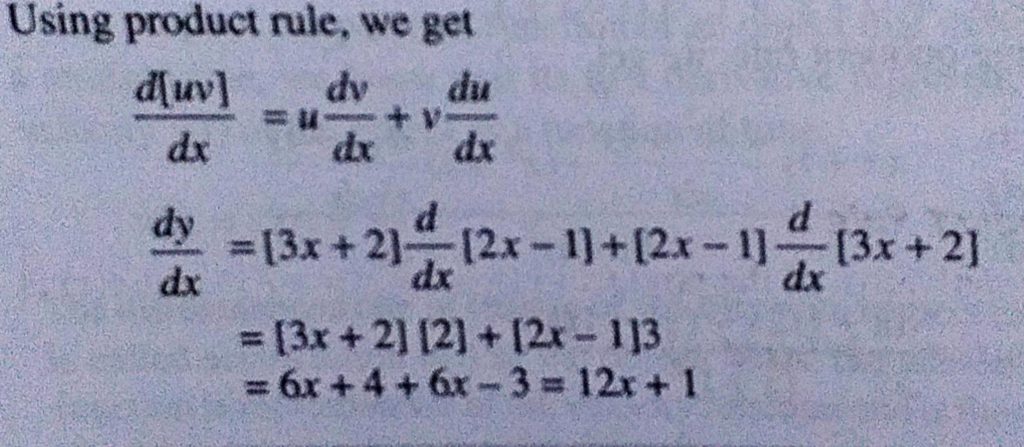



If Y 3x 2 2x 1 Then Find Dy Dx Sahay Lms
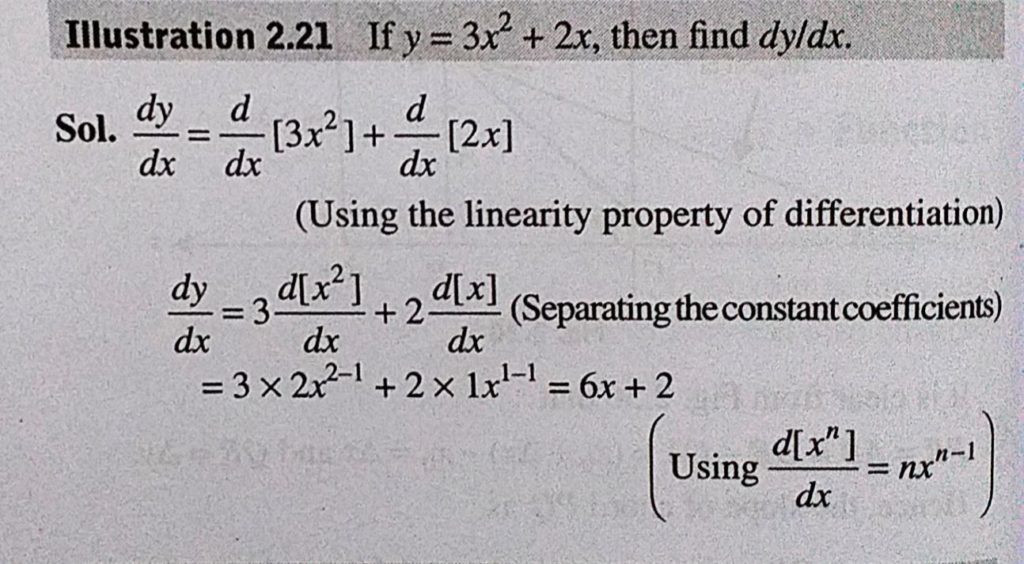



If Y 3x 2 2x Then Find Dy Dx Sahay Lms
If y = √(ax) √(ax)/√(ax) √(ax), then dy/dx = If y = √((1x)/(1x)), then (1x 2)dy/dx y is equal to If y = 1/(az), then dz/dy = If y = 3at 2 /(1t 3) and x = 3at/(1t 3), then dy/dx is equal to If y = 5 x x 5, then dy/dx is equal to If y = a log x bx 2 x has its extremum value at x = 1 and x = 2, then (a, b) = When solving the differential equation $$ (3x^26xy^2) dx (6x^2y4y^2)dy = 0 $$ I verified that it is an Exact Equation By saying that $$ F_x = 3x^26xy^2\\ F_y = 6x^2y4y^2 dy/dx = dY/dX Therefore, the equation becomes (in X, Y) If l, m are chosen to satisfy In X, Y the equation is homogeneous and of the first degree Put Y = VX Then Separating the variables (X, V) and integrating, where A is an arbitrary constant



3 The Derivative From First Principles
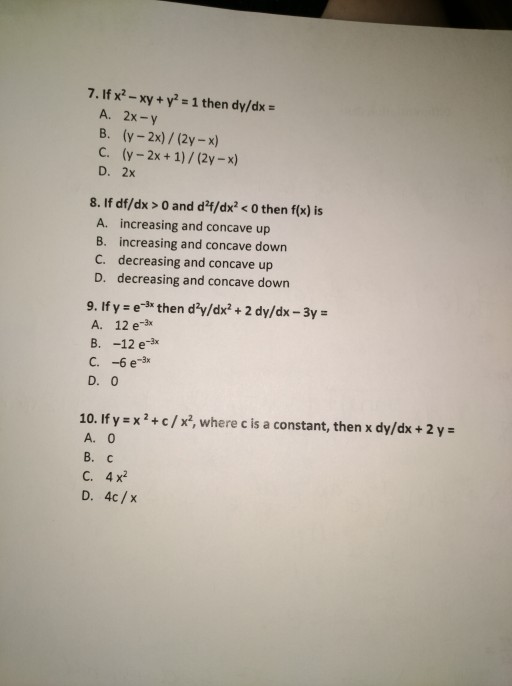



7 If X2 Xy Y2 1 Then Dy Dx A 2x Y B Chegg Com
Solving a Single Variable Equation 53 Solve 3x1 = 0 Add 1 to both sides of the equation 3x = 1 Divide both sides of the equation by 3 x = 1/3 = 0333X2y3 (xxy2) dy dx = 0 is not separable, since (x 2y3) y = 3x 2y2, but (x xy ) x = 1 y However, after multiplication by µ(x,y) = 1/(xy3), we get x2y3 xy 3 x(1y2) xy dy dx = 0 Simplify x(y −3 y 1) dy dx = 0 Note that this becomes separable, so it is also exact Using the methods from this section, f(x,y) = Z M dx = 1 2 x2 g(yIf dy/dx = y/x and y(2) = 6, then y = 3x y = 1/2x^2 x 4 y = x 4 y = 3 squareroot 8x^2 y = 2x 2 Get more help from Chegg Solve it with our calculus problem solver and calculator




How To Do Implicit Differentiation 7 Steps With Pictures




Ex 5 3 10 Find Dy Dx In Y Tan 1 3x X3 1 3x2 Ex 5 3
It's a multiple choice question anf this is not one of the answers listedSolve your math problems using our free math solver with stepbystep solutions Our math solver supports basic math, prealgebra, algebra, trigonometry, calculus and more Click here 👆 to get an answer to your question ️ If y=sin(3x2) then dy/dx is Harsha7574 Harsha7574 Physics Secondary School answered If y=sin(3x2) then dy/dx is 1 See answer Harsha7574 is waiting for your help Add your answer and earn points



Derivatives Basic Web Formulas




Clicker Question 1 Suppose Y X 2 3x 2 X Then Y Could Be A 2x 3 B X 2 3x 2 C X 2 3x 2 Ln X 7 D X 2 Ln X Ppt Download
If y = tan1 4x/(1 5x2) tan1((2 3x)/(3 2x)), where 0 λ/(1 25x2), then find λMove 2 2 to the left of cos ( 2 x) cos ( 2 x) Differentiate using the Power Rule which states that d d x x n d d x x n is n x n − 1 n x n 1 where n = 1 n = 1 Multiply 2 2 by 1 1 Reform the equation by setting the left side equal to the right side Replace y' y ′ with dy dx d y d x




Worked Example Implicit Differentiation Video Khan Academy
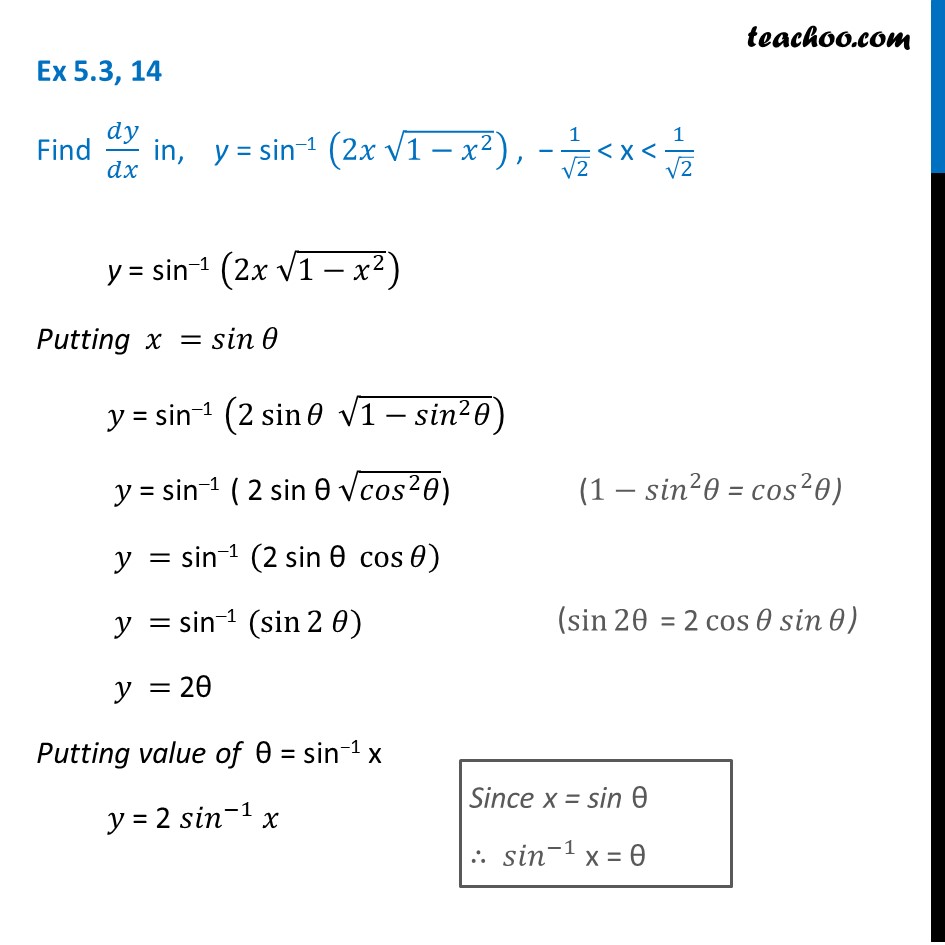



Ex 5 3 14 Find Dy Dx In Y Sin 1 2x Root 1 X2 Cbse
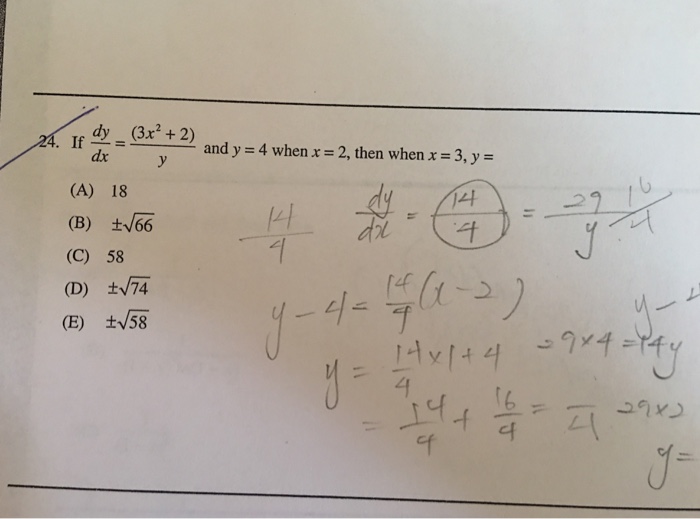



If Dy Dx 3x 2 2 Y And Y 4 When X 2 Then Chegg Com




If Y 1 A 2 X 2 Find Dy Dx Brainly In



1




If Y 6 X 5 4x 4 2x 2 3x 2 Then Find Dy Dx At X 1



Www Pnw Edu Wp Content Uploads 03 Lecture Notes 8 5 Pdf
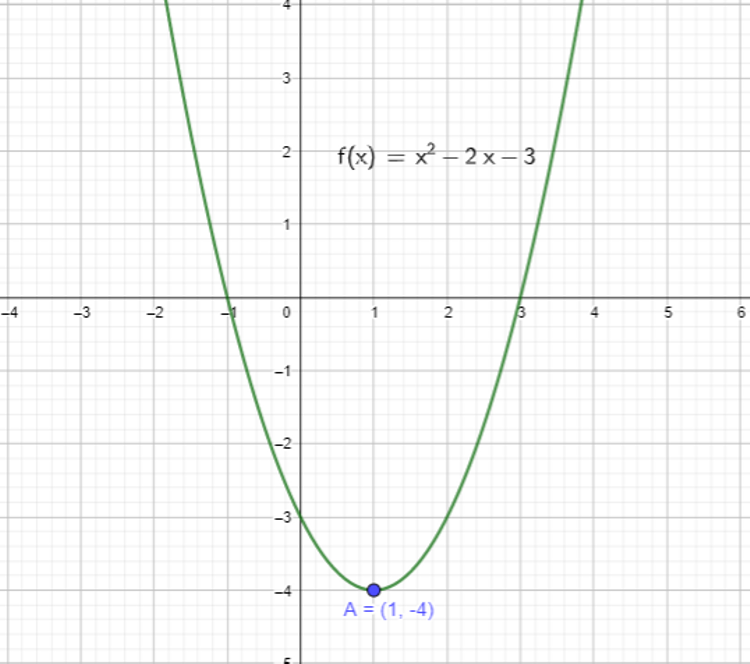



Basic Differentiation Tutorial For Igcse And A Level Maths Vivax Solutions
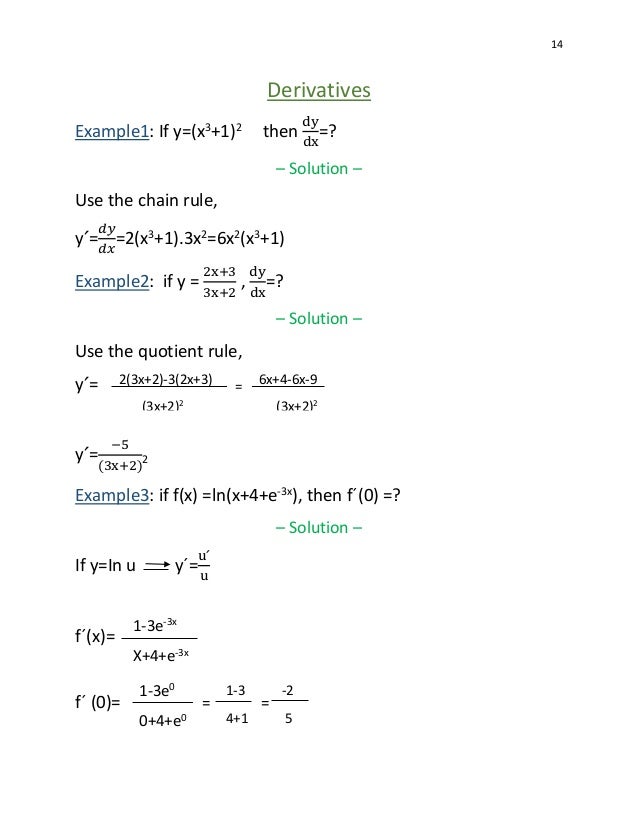



Calculusstudyguide
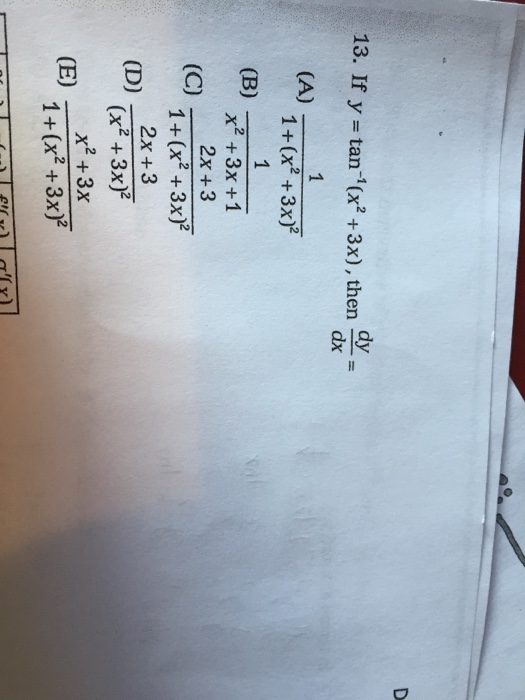



13 If Y Tan 1 X2 3x Then Dy Dx 1 X2 3x Chegg Com




If Y X Is The Solution Of Dy Dx X 2 1 Y 2 Y 0 2 Then Y 3 Homeworklib




If X 2 Y 3 X 3y 2 Then Dy Dx Youtube




Y 2x 3 4x 5 Find Y Find The Double Derivative Of Y Brainly In



Solve The Differential Equation Math Y 2x Dfrac Dy Dx X X 1 Y 3 Math Quora



Q Tbn And9gcq69xqaiwgxy95 44f5sqsm2pnlgxvor Roue6xadfczqpkv4qx Usqp Cau




If Y 3x 2 2x Then Find Dy Dx Youtube



Www Deerfield K12 Wi Us Faculty Polzinr Cms Files Assignment Attach 330 Final review key Pdf




The Quick Guide To Calculus The Derivative Derivative A Derivative Measures How Much A Function Changes For Various Inputs Of That Function It Is Ppt Download
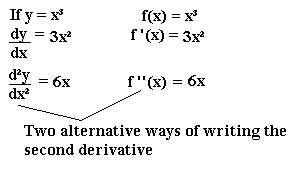



The Second Derivative Mathematics A Level Revision




Y 2x 3 4 7x 1 2 2 3x 1 3 4 3x 2 3 Dy Dx Youtube




If Y E 3x 2 Then Dy Dx Is



Solve 3x 2 2 D 2y Dx 2 3 3x 2 Dy Dx 36y 3x 2 4x 1 Sarthaks Econnect Largest Online Education Community



Www Tau Ac Il Levant Ode Solution 6 Pdf



Rules Of Calculus Functions Of One Variable
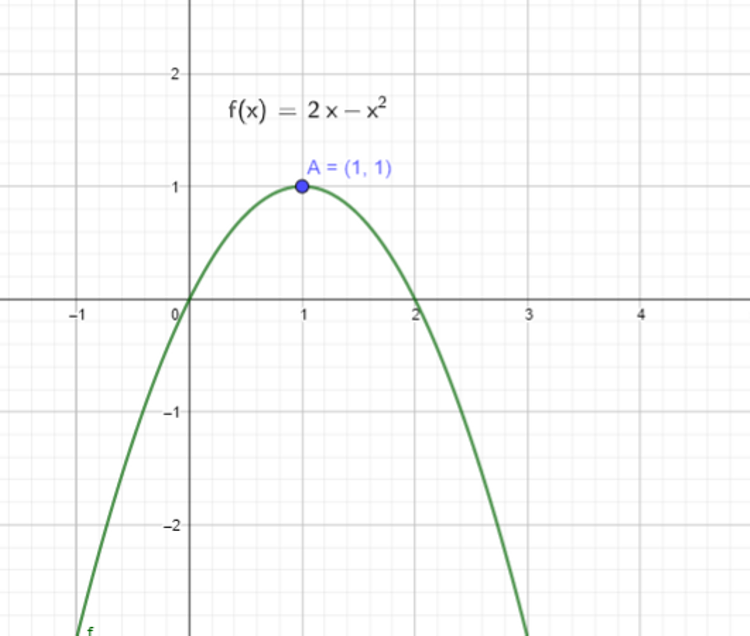



Basic Differentiation Tutorial For Igcse And A Level Maths Vivax Solutions
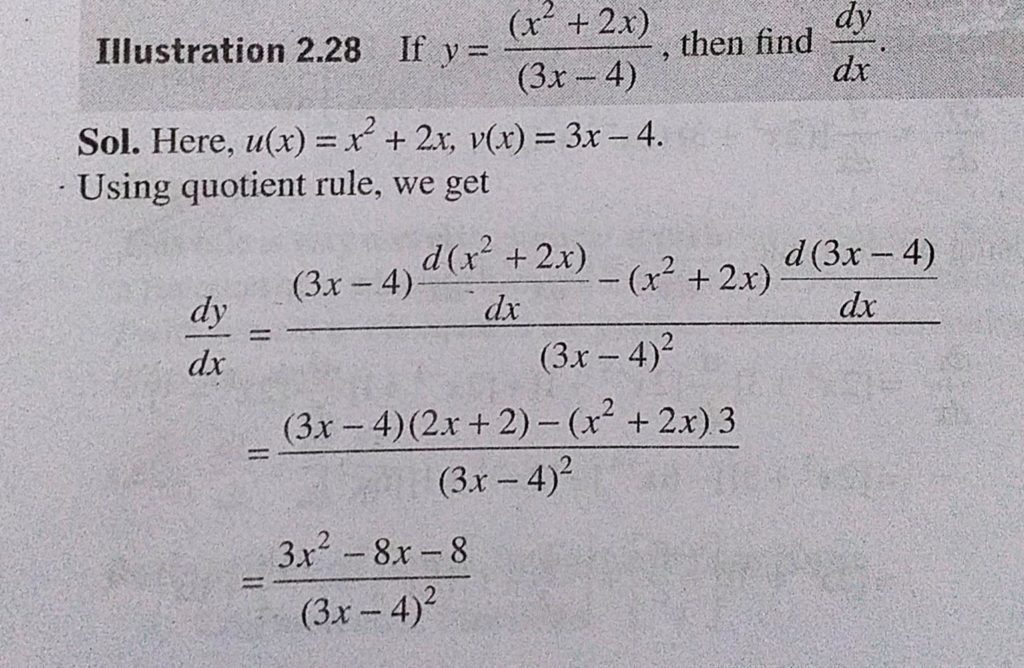



If Y X 2 2x 3x 4 Then Find Dy Dx Sahay Lms




Implicit Differentiation Advanced Example Video Khan Academy



Solved Find Dy Dx Y 2x 6 Find F X F X X 3 2 4 Find The Derivative D Dx 7 S Q R T X 7 X Find The Derivative Course Hero



Math Scene Derivatives Lesson 2 Differentiating Polynomials



Http Gato Docs Its Txstate Edu Jcr B46fa4 Edf4 4dd0 aa 619b4bf Derivatives Chain and power rules Pdf



1




1 Review Review Test Find The Derivative For Y 3x 2 5x 7 A Y 3x 5c Y 6x C Y 6x 5d Y 6x E None Of The Above Ppt Download



Www Wssd K12 Pa Us Downloads Exam prep a11 soln Pdf



Secure Media Collegeboard Org Digitalservices Pdf Ap Apcentral Ap15 Calculus Ab Q4 Pdf
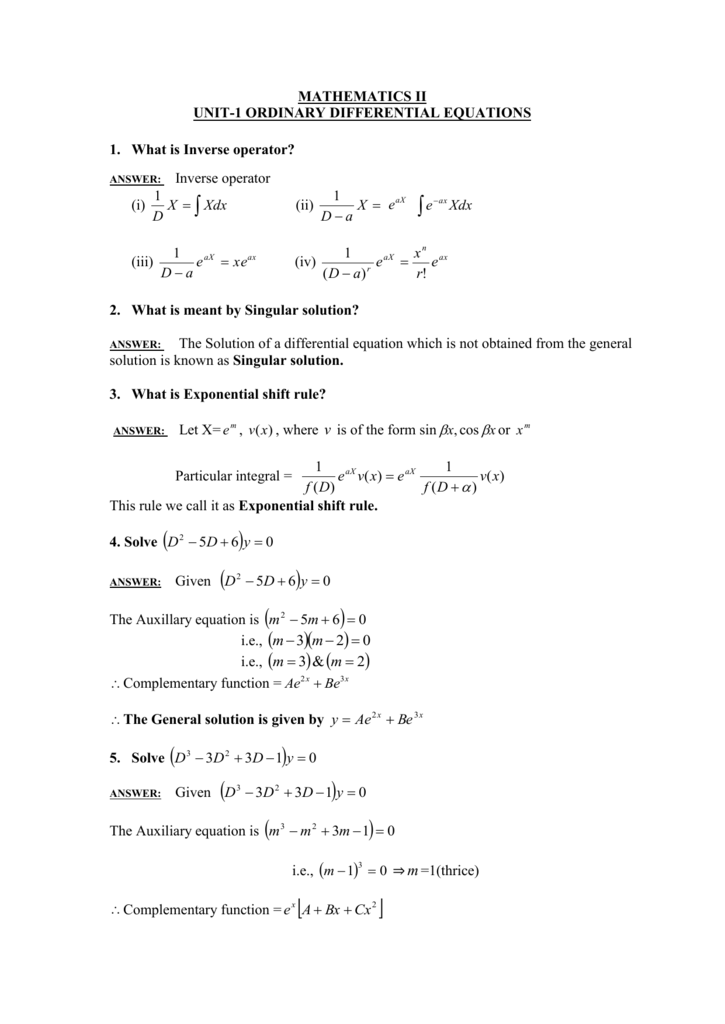



Mathematics Ii Tranquileducation




If Y X X 1 X 2 Then Dy Dx Is Brainly In




Engineering Mathematics Notes




Show That The Equation 5x4 3x2y2 2xy3 Dx 2x3y 3xy2 5y4 Dy 0 Is An Exact Differential Equation Find Its Solution Mathematics 2 Question Answer Collection




Compute Dy And Dy For The Given Values Of X And Dx Dx Then Sketch A Diagram Like Figure 5 Showing The Line Segments With Lengths Dx Dy And Dy Y 2x X 2 X




If Y 2x 3 4x 5 Then Find Y Brainly In




Y 2x 5 3x 2 Find The Derivative Youtube



3 8 Implicit Differentiation Calculus Volume 1




What Is The Equation Of The Tangent To The Curve Y 3x 2 X 1 At Point 1 3 Quora




If Y 2x 3 3x 5 Find Dy Dx Youtube



Math Scene Derivatives Lesson 2 Differentiating Polynomials



Http Www2 Gcc Edu Dept Math Faculty Bancrofted Teaching Handouts Sep Of Var Examples Pdf



Www Lcps Org Cms Lib Va Centricity Domain 2 5 notes filled out Pdf



Http Www Stat Wisc Edu Ifischer Calculus Pdf
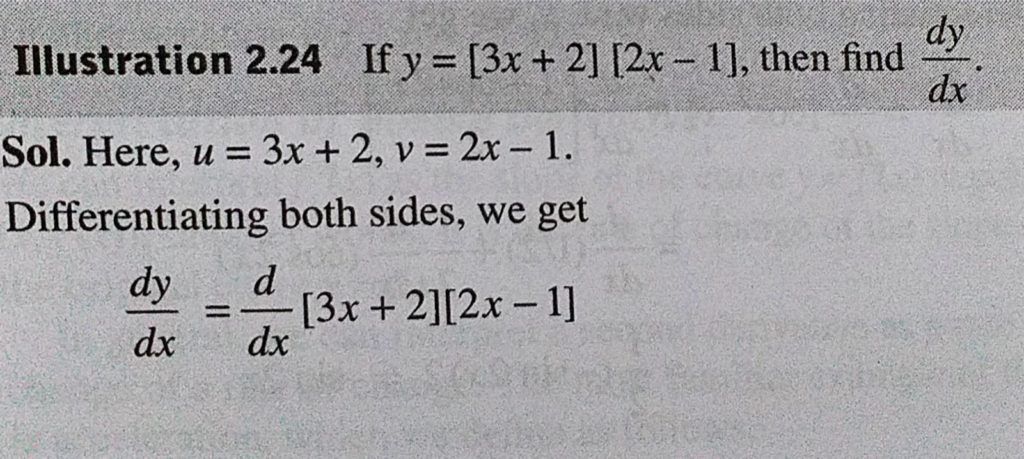



If Y 3x 2 2x 1 Then Find Dy Dx Sahay Lms
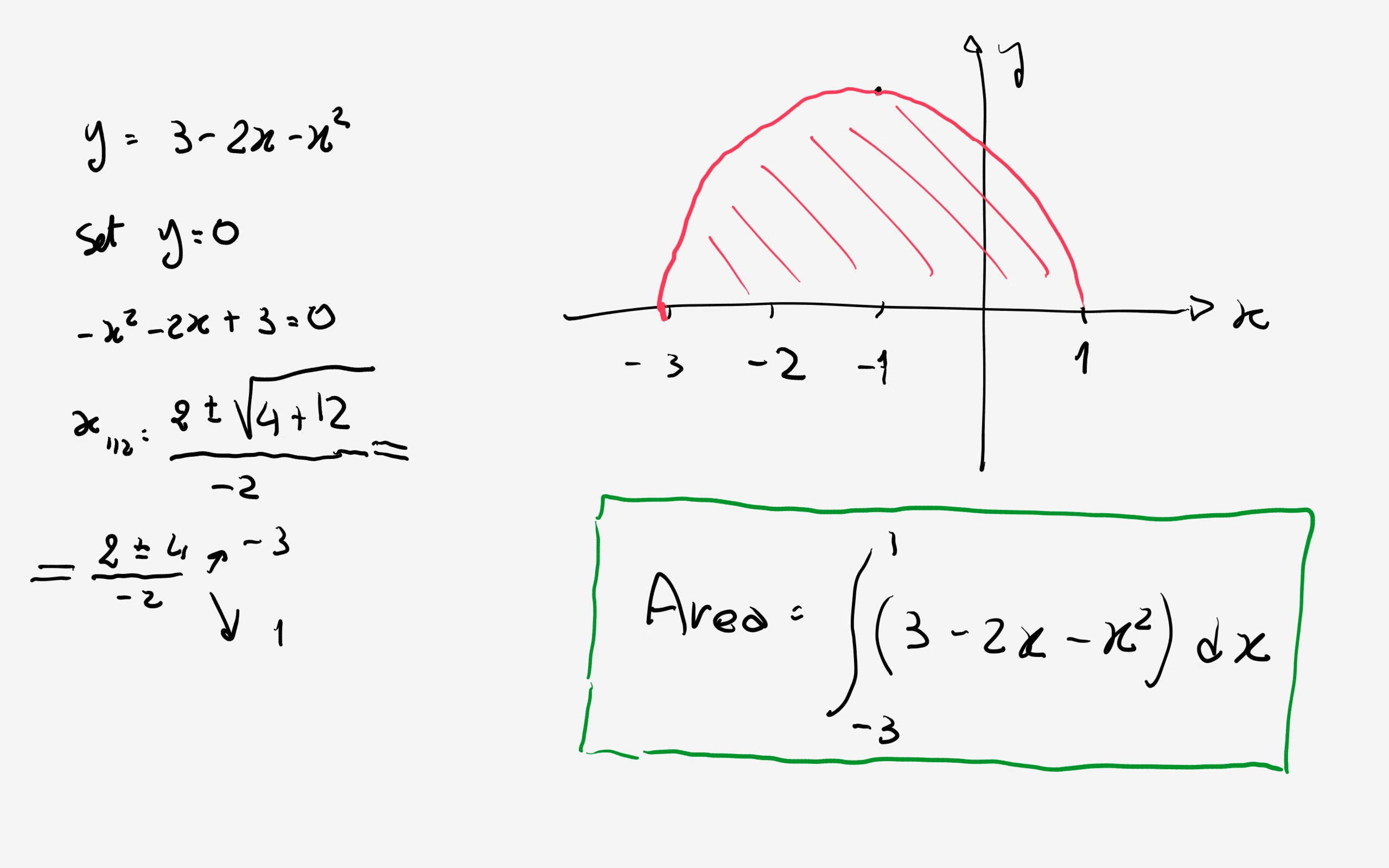



How Do You Find The Area Bounded By The Curve Y 3 2x X 2 And The X Axis Socratic
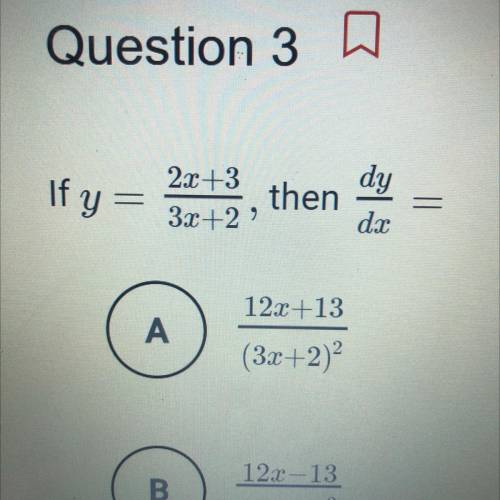



If Y 2x 3 3x 2 Then Dy Dx




Engineering Mathematics Notes




Math 432 Hw 2 5 Solutions Pdf Free Download



Secure Media Collegeboard Org Digitalservices Pdf Ap Ap16 Calculus Ab Q4 Pdf



If Y 3e 2x 2e 3x Prove That D 2y Dx 2 5dy Dx 6y 0 Sarthaks Econnect Largest Online Education Community



Studywell Com Wp Content Uploads 15 04 Differentiationexamquestions Pdf




If 2 X 2 Y 2 X Y Then Dydx Is Equal To



2
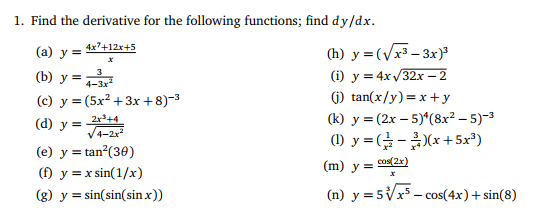



Find The Derivative For The Following Functions Find Chegg Com




Let Y 2x 3 2x Then Dy Dx Is Equal To



1



Pplato Basic Mathematics Maxima And Minima



3 8 Implicit Differentiation Calculus Volume 1




The Solution Of 2x 2 3y 2 7xdx 3x 2 2y 2 8 Ydy 0 Is Given By



Pplato Basic Mathematics Maxima And Minima




If Y 2x 3 3x 5 Find Dy Dx




Solutions To Implicit Differentiation Problems




If Y 2x 3 3x 2 6x 1 Then Dy Dx Will Be Youtube




Derivative Rules



Http Images Pcmac Org Sisfiles Schools Ms Desotocounty Lewisburghigh Uploads Forms Apcalculussevparta Pdf




Differential Equations Solved Examples Show That Following Differential Equation Is Not Exact 3x 2y 4 2xy Dx 2x 3y 3 X 2 Dy 0 Then Find An Integrating Factor To Solve The Differential Equation




Differentiating Related Functions Intro Video Khan Academy
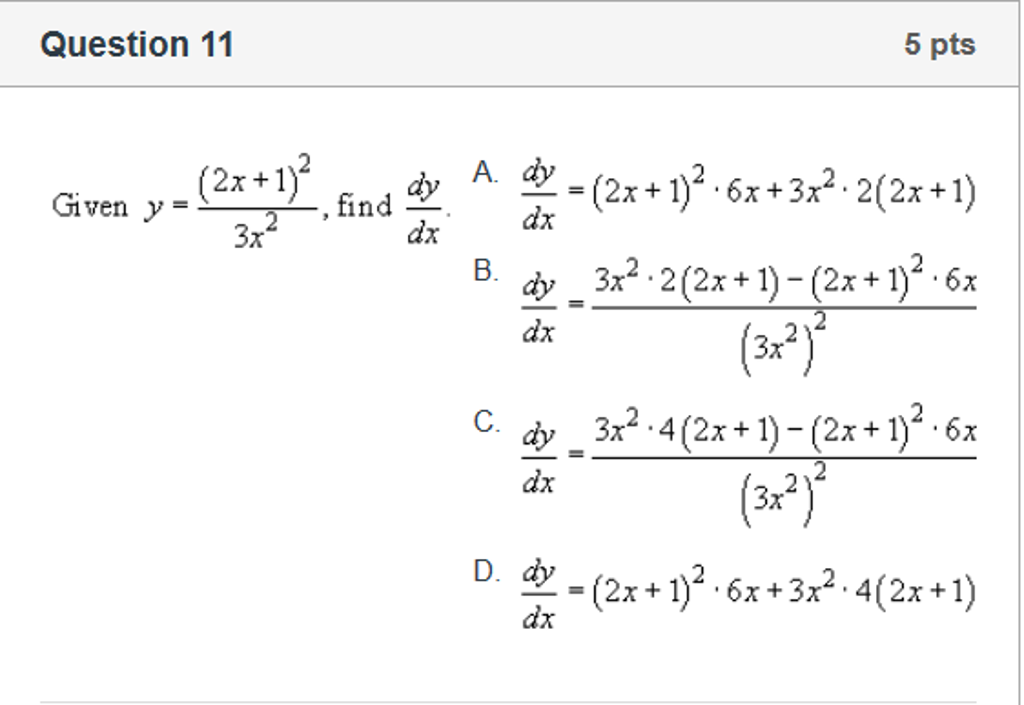



Given Y 2x 1 2 3x 2 Find Dy Dx Dy Dx 2x Chegg Com




Engineering Mathematics Ii Pages 151 0 Flip Pdf Download Fliphtml5



Www Deerfield K12 Wi Us Faculty Polzinr Cms Files Assignment Attach 330 Final review key Pdf
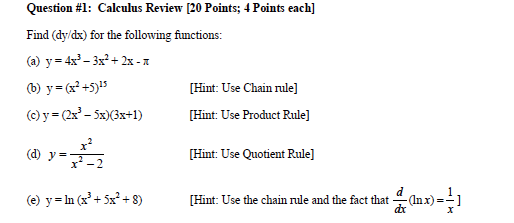



Find Dy Dx For The Following Functions A Y Chegg Com



0 件のコメント:
コメントを投稿